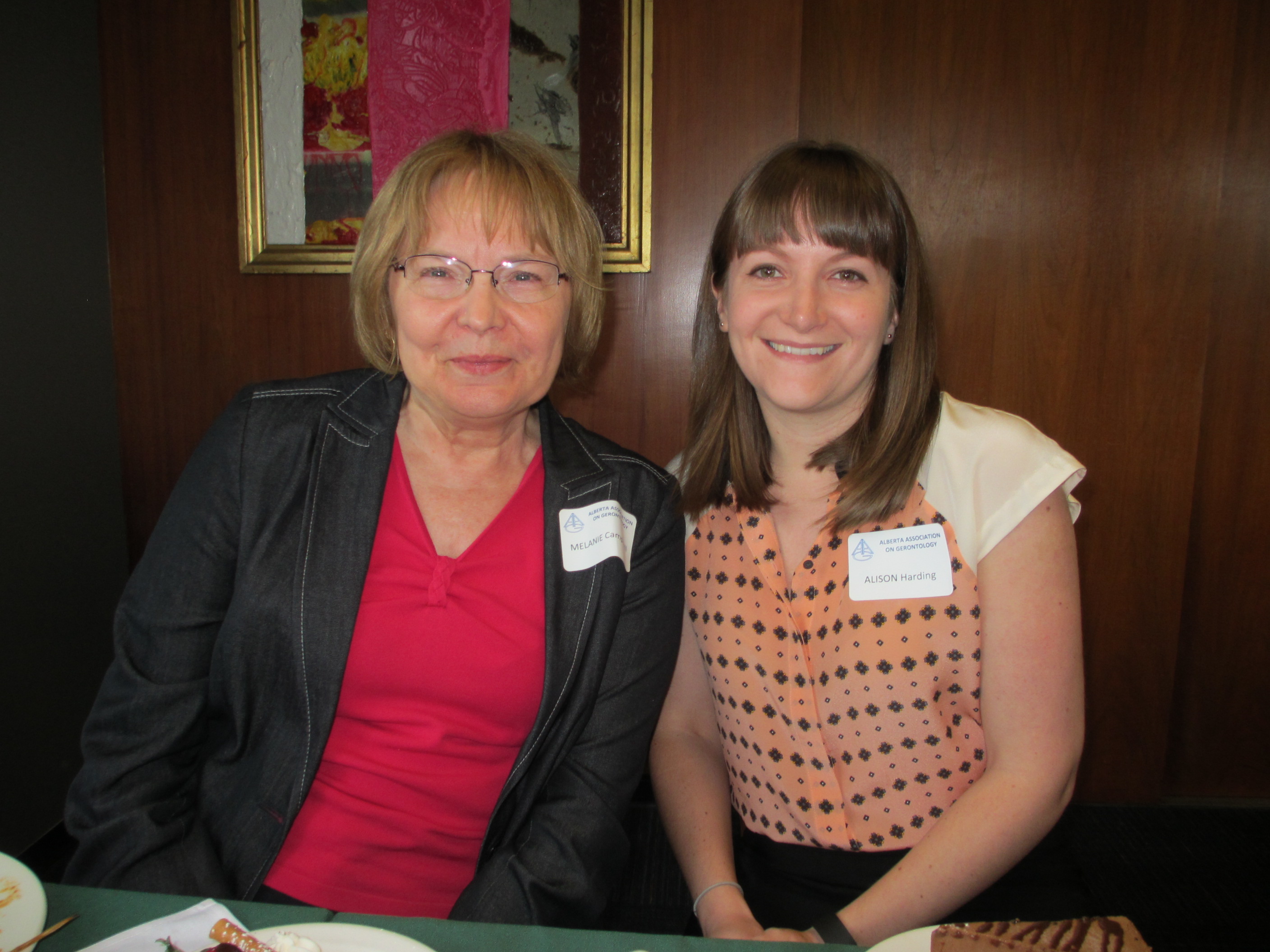
Melanie Campbell, left, with award recipient Alison Harding at the Alberta Association on Gerontology (AAG) annual general meeting. (Photo supplied).
It was her trip to Guatemala that made Alison Harding realize her passion for seniors and the field of gerontology. The University of Alberta MSc Speech-Language Pathology student (thesis-based track) was recently recognized for this very passion by the Alberta Association on Gerontology (AAG) with the 2016 Provincial Student Award, honouring her work in the field of aural rehabilitation for seniors.
"In Guatemala, I volunteered at an Elder's Center, where I came to know various elderly community members and heard their life stories," Harding said.
"It was through these interactions that I became interested in issues affecting this population and became inspired to pursue research relating to the quality of life of seniors."
Since that trip, Harding was able to decide which direction she wanted to take her career, bringing her to the Faculty of Rehabilitation Medicine.
Harding's path to the speech-language pathology program at the Department of Communication Sciences & Disorders wasn't always straightforward.
Though she started her undergraduate degree in biology at the University of Calgary, she quickly realized her passion for speech.
"I took a linguistics course in first semester and loved it," she said.
It was after she switched to a joint major in linguistics and Latin American studies that Harding had the chance to travel to Guatemala, where she saw the need for rehabilitation research and services aimed at helping seniors. She made helping this population one of her life goals.
"In Guatemala, I got to know myself better. Most importantly, I learned I wanted to be in a caring profession," she said.
After graduating from U of C in 2012, Harding worked for two years as a speech-language pathologist assistant.
Shortly after that, she was accepted into the MSc Speech-Language Pathology (SLP) program at the U of A and chose the thesis-based track, a program that allows her to enrich her clinical learning with research in aural rehabilitation and gerontology.
Harding has been hard at work writing her thesis and doing research. On track to be completed in spring 2017, her thesis will focus on the services provided by three separate professional groups in Alberta: speech-language pathologists, audiologists, and hearing aid practitioners.
Through surveys and interviews, she seeks to discover what services are being provided by these professionals, and also plans to evaluate the reasons for the types and prevalence of those services.
Melanie Campbell, who shares supervision of Harding's thesis with Wonita Janzen, said the findings will be valuable to the SLP community.
"This is going to be a very useful document to government, health authorities and our profession," she said.
Harding's topic is also relevant to all Canadians, as according to Campbell, hearing loss is the fastest growing disability in Canada.
"Hearing gradually slips away; it isn't something that happens overnight," Campbell warned, adding that with an aging population of baby boomers, and an increase in the number of people who use ear buds, more research in aural rehabilitation is needed.
Campbell recalled the extra work in qualitative research Harding undertook to improve her knowledge and understanding of research methods. Through assistance from the Rehabilitation Research Centre, Harding did independent reading and enrolled in a stats course. She also undertook several research design courses.
"This ambitious attitude is exactly what made Harding an excellent candidate to receive the award," said Campbell. "Congratulations, Alison!"